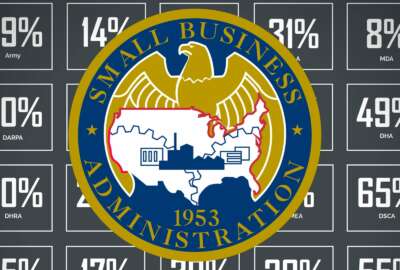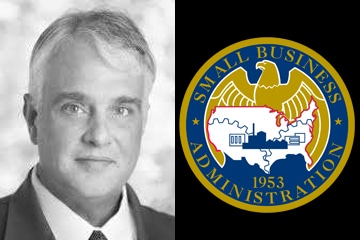
The Small Business Administration and private-sector partners are looking to give women-owned small businesses a better shot to entering the federal contracting...
Best listening experience is on Chrome, Firefox or Safari. Subscribe to Federal Drive’s daily audio interviews on Apple Podcasts or PodcastOne.
The Small Business Administration and its private-sector partners are looking to give women-owned small businesses a better shot at entering the federal contracting market through their ChallengeHER program.
The agency, partnered with the group Women Impacting Public Policy and American Express, gives female small business owners a crash-course in government procurement.
“We really agreed this would be a way to combine our efforts, combine our resolve to affect positively the contracting opportunities for women business owners,” Antonio Doss, SBA’s Washington, D.C. metro area district director, said in an interview last month. “The federal space is huge for government contracting, and women-owned businesses were participating, but not participating at the level that we thought was possible.”
Since the project began in 2013, ChallengeHER has taught more than 14,000 women the fundamentals of government contracting.
“Our percentage of business that’s gone to women-owned businesses has increased the last few years,” Doss said. “In fact, we’re now $5 billion more in contract awards to women business owners since we actually established this partnership five years ago.”
The federal government has been on a hot streak meeting its small-business contracting goals, It reached its benchmarks for the past five years, and its spending on small business contracts exceeded $100 billion for the first time in fiscal 2017.
But the government fell short of its target for women-owned small business in FY 2017. They made up less than 5 percent of the government’s overall spend.
Candace Waterman, president and CEO of Women Impacting Public Policy (WIPP), said her group advocates for women-owned businesses on the Hill. But now, working through ChallengeHER, she said her organization has a forum to help educate women.
“We’re on the Hill, advocating for [contracting] parity, but then we’re in the classroom educating so that they can fulfill those contracts in an appropriate manner,” Waterman said. “Because we do a disservice to the program if a woman is awarded a contract she can’t fulfill.”
SBA specialists from the agency’s Procurement Technical Assistance Center (PTAC) program help train women in the ChallengeHER program on how best to enter the federal marketplace.
Doss said the PTAC specialists train women business owners in market research, and ways to identify the best contracting opportunities.
“Some business owners, when they’re starting out, they want to shotgun and go [to] many, many agencies,” he said. “And really, that’s not necessary or effective, because there’s not enough research that’s done, and so people spend too much time focusing in the wrong direction.”
Small businesses and start-ups often deliver on innovation faster than some larger companies. That’s been the experience of the Defense Department, which stood up the Defense Innovation Unit (DIU) help bring some of those start-ups into the government procurement space.
Doss said small businesses often bring new ideas and a diversity of perspectives to the table.

In the Washington, D.C. area, Doss noted that female small business owners have found particular success in the IT field.
“We have women business owners who are excelling in that area, proving support to agencies like NASA and the Department of Energy, DoD facilities and very technical, scientific, STEM-type disciplines,” he said.
But it’s not all about seeking agency-to-business opportunities. Waterman said women-owned small business shouldn’t overlook opportunities in government subcontracting as well.
“I think they overlook that indirect opportunity, and want to go directly to an agency, where indirect really has an amazing opportunity for you to get past performance, for you to grow capacity, for you to grow your understanding of the agency – the idiosyncrasies within the agency, the requirements within the agency,” she said.
But once first-time government contractors get the green light, Doss said there’s still plenty of resources available to them.
“If a business runs into a challenge, we’re here at the SBA, along with our resources partners, to help them work through and navigate those challenges,” he said.
Copyright © 2025 Federal News Network. All rights reserved. This website is not intended for users located within the European Economic Area.
Jory Heckman is a reporter at Federal News Network covering U.S. Postal Service, IRS, big data and technology issues.
Follow @jheckmanWFED
